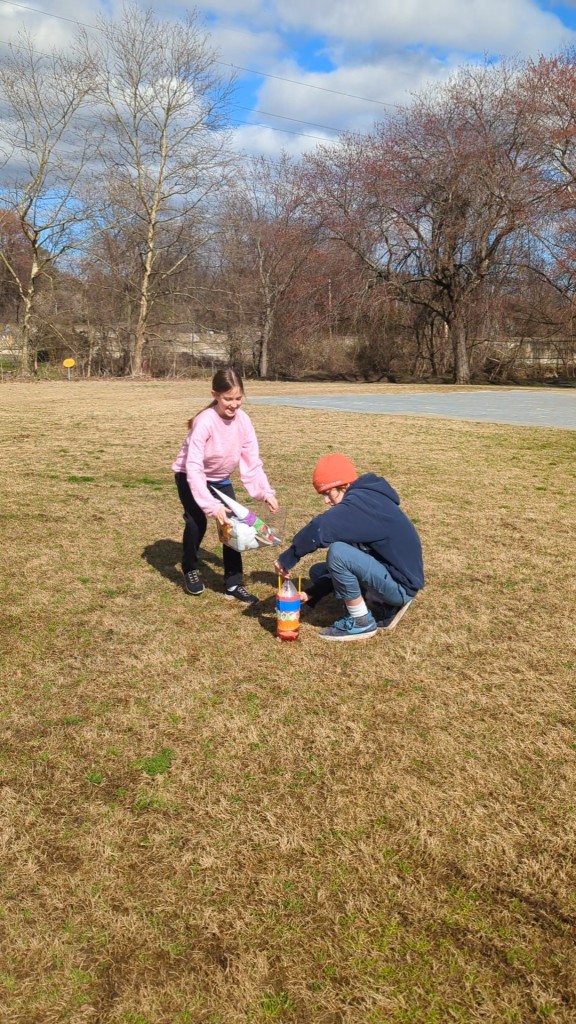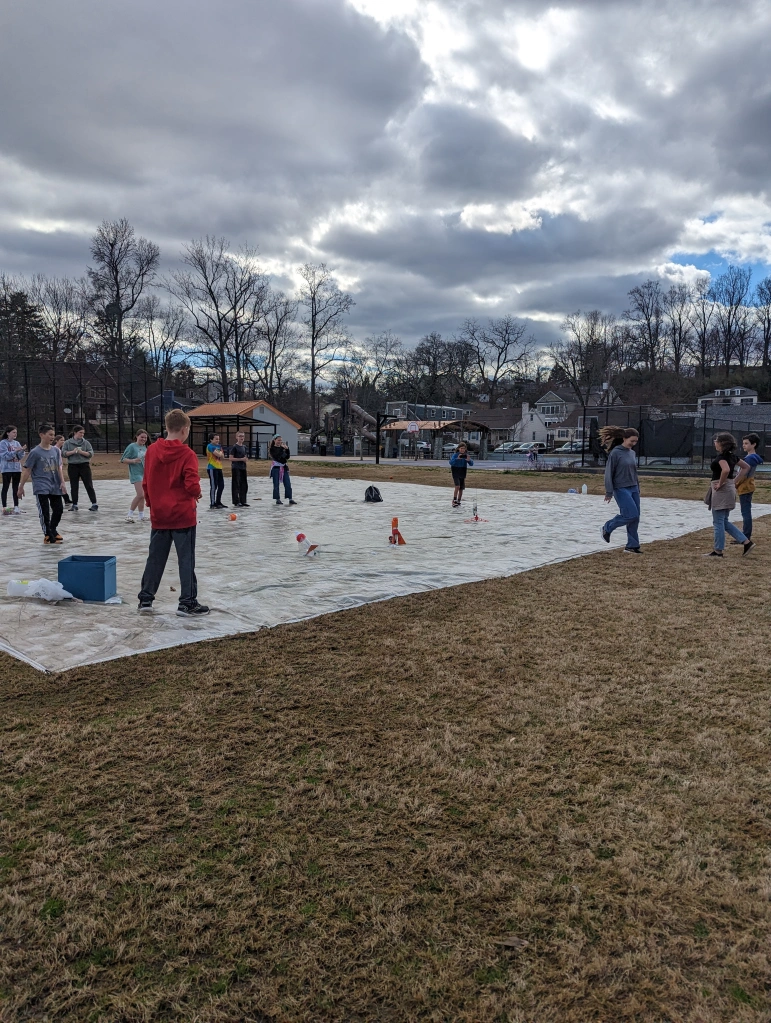Adventure learners are wrapping up their three-part chemistry deep dive this session. In Session 3, learners experimented with edible slime and created their own recipes for families to try at the end-of-session exhibition of learning. Thank you to the many brave family members and friends who courageously tried the studio concoctions! During Session 4, learners prepared three-course meals for two professional chefs to sample and offer feedback on. We had appetizers, entrées, and desserts ranging from fresh Italian cuisine to flavorful Japanese fare. For this session’s project, learners have stepped into the shoes of a rocket scientist and are igniting their curiosity as they learn about the chemistry behind rockets. The Rockets Project invites learners to design rocket models, experiment with different kinds of fuel, and record, analyze, and share their data.
To kickstart our project, learners researched how rockets work. The questions they explored included:
- How do rockets function? What are the different parts of a rocket?
- What is the point of fuel?
- What chemical reactions do we see happening when a rocket is launched?
- What is propulsion?
- Is it a sustainable / environmentally friendly process to launch rockets into space?
Next, learners identified a current event or project in the world of rocket science to fuel their inspiration. Topics included:
- Recent rocket launches by SpaceX and other space agencies
- Advancements in rocket propulsion technology
- Missions to explore other planets or celestial bodies
- Space tourism initiatives
- Developments in satellite technology
After setting up their science notebooks, learners prepared for experimentation. The first rockets learners launched were Alka-Seltzer rockets. Consisting of only three materials – film canisters, Alka-Seltzer tablets, and water – these simple rockets encouraged the learners to focus on the importance of ratios. Learners repeatedly placed tablet pieces of varied sizes into their canisters, added water from the creek, and stepped back in anticipation. They watched as rockets all around them either remained earthbound or fizzled and sputtered before launching into the air. Some popped up just a few inches, while others soared high into the air. One learner shared, “I didn’t think that small rockets would go so high!”
Next, learners experimented with 16-ounce baking soda and vinegar rockets. Upon reflection, several learners shared that they expected the rockets to fly higher than they had. While the studio discussed what had and hadn’t worked, one learner shared, “I thought I needed to use a lot of vinegar at first but when I used less vinegar the rocket went higher. I think the gas in the bottle was able to build up more because there was more space.”

On Thursday, learners were challenged to launch a rocket of their own creation and a 2-liter soda bottle rocket. Some learners used Alka-Seltzer and water, some used baking soda and vinegar, others utilized all available materials, and some relied on air pressure. Now imagine a field full of energetic middle school learners experimenting with materials that go ‘boom’ and launching bottle after bottle into the air. A few rockets flew straight up while many followed surprising and laughter-inducing trajectories. Expectedly, there were successes and failures. One group, whose rockets had failed previously, experienced one successful launch after another. A different group, whose rockets did not soar as high as they were hoping, shared several lessons learned and new strategies for moving forward.
Over the next two weeks, learners will continue making headway on their rockets through trial and error. Adventure has two more opportunities to make adjustments to their rockets and one more test day before our final launch. For a successful mission, a rocket that launches at least four meters into the air on the first attempt, learners will be challenged to stretch their perseverance, patience, creativity, and curiosity.
Good luck, Adventurers! You’ll ROCKet!

